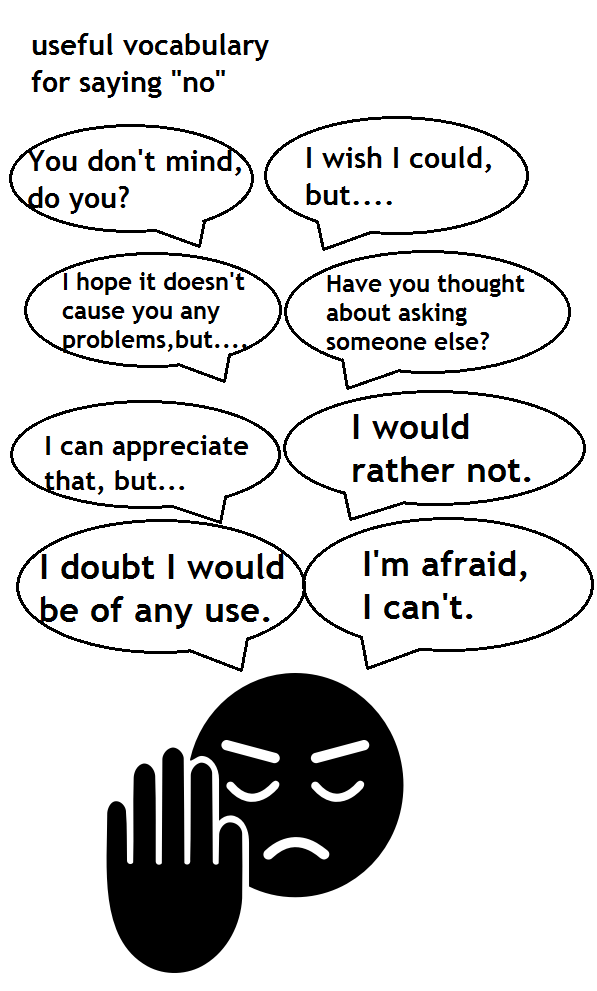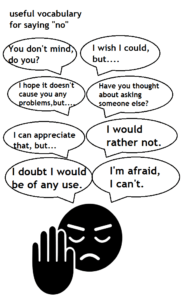saying no in English - interactive Exercises
Quiz-summary
- 1
- 2
- 3
- 4
- 5
- 6
Information
.
Results
Categories
- Not categorized 0%
- 1
- 2
- 3
- 4
- 5
- 6
- Answered
- Review
-
Question 1 of 6 1.
Question How do you refuse these requests politely in English?
Can you open the window please?
-
Question 2 of 6 2.
Question answer to this sentence politely in English:
Is this a problem for you?
-
Question 3 of 6 3.
Question Refuse this request politely:
Can I smoke in here?
-
Question 4 of 6 4.
Question Refuse this request politely:
„Can you come along to the business trip?“
-
Question 5 of 6 5.
Question Match the phrases to form meaningful sentences:
Sort elements
- I doubt I would be of any use.
- I would prefer you not to.
- Yes, in a certain way it is.
- Maybe later. Right now I am busy.
- I wish you would do it.
-
Can you come and see that customer with me?
-
Can I smoke a cigarette in here?
-
I this disturbing you ?
-
Please clean up your room.
-
Can you answer the phone, please?
-
Question 6 of 6 6.
Question Fill into the blanks to complete the sentences in a meaningful way:
-
Can you (close, shut) the window please? I'm cold.
Sorry, I (would) rather leave it open.
How about closing it halfway. (would) that work for you?
Unfortunately I would (prefer) the window to be closed completely. Is this a problem for you?
Yes, in a (certain) way it is. I am catching a draft.
-
Can you (close, shut) the window please? I'm cold.
To say no is not always easy, especially in a foreign language. The English language avoids direct negativity.
Therefore, it is necessary, in order not to cause intercultural friction, to "sugarcoat" a negation with extenuating phrases.
As verbal "aribag" words like Unfortunately, sorry, would rather, would prefer, I am afraid come in very handy.
English speakers often do not take well to direct negativity and mutual rapport might cool down to the freezing point, although there was no harm intended.




